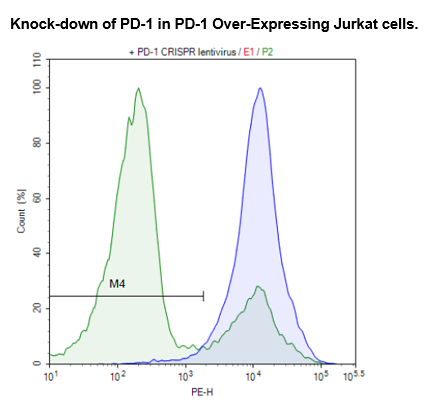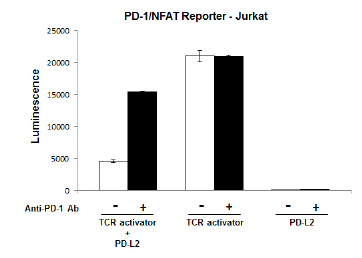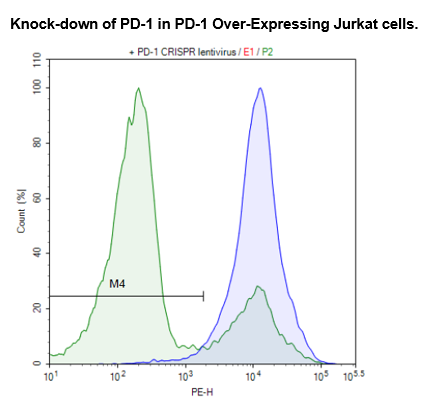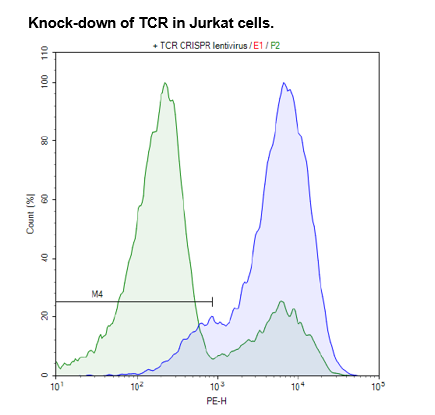
PD-1 CRISPR/Cas9 Lentivirus (Non-Integrating)
78059
Product group Molecular Biology
Overview
- SupplierBPS Bioscience
- Product NamePD-1 CRISPR/Cas9 Lentivirus (Non-Integrating)
- Delivery Days Customer7
- CertificationResearch Use Only
- Hazard Informationun3373
- Scientific DescriptionThe binding of Programmed Cell Death Protein 1 (PD-1), a receptor expressed on activated T-cells, to its ligands, PD-L1 and PD-L2, negatively regulates immune responses. PD-1 ligands are found on most cancers, and the PD-1:PD-L1/2 interaction inhibits T-cell activity and enables cancer cells to escape immune surveillance. The PD-1:PD-L1/2 pathway is also involved in regulating autoimmune responses, making these proteins promising therapeutic targets for a number of cancers, as well as multiple sclerosis, arthritis, lupus, and type I diabetes. The PD-1 CRISPR Lentiviruses are replication incompetent, HIV-based VSV-G pseudo-typed lentiviral particles that are ready to be transduced into almost all types of mammalian cells, including primary and non-dividing cells. The particles contain a CRISPR/Cas9 gene driven by an EF1a promoter, along with 4 sgRNA (single guide RNA) targeting human PD-1 (Programmed Cell Death 1, PDCD1, CD279, GenBank Accession #NM_005018) driven by a U6 promoter. The non-integrating lentivirus is made with a mutated integrase, resulting in only transient expression of the Cas9 and sgRNA. Although using the non-integrating lentivirus results in lower knockdown efficiency, the Cas9 isnt permanently expressed, which lowers the risk of off-targeting, and there are no random integrations into the cells genome. Knockout cell lines can still be generated following cell sorting or limited dilution, because even though the Cas9 and sgRNA expression is transient, the changes in the genomic DNA from the Cas9 nuclease activity and NHEJ repair are permanent.
- Storage Instruction-80°C
- UNSPSC41115812
- SpeciesVirus




